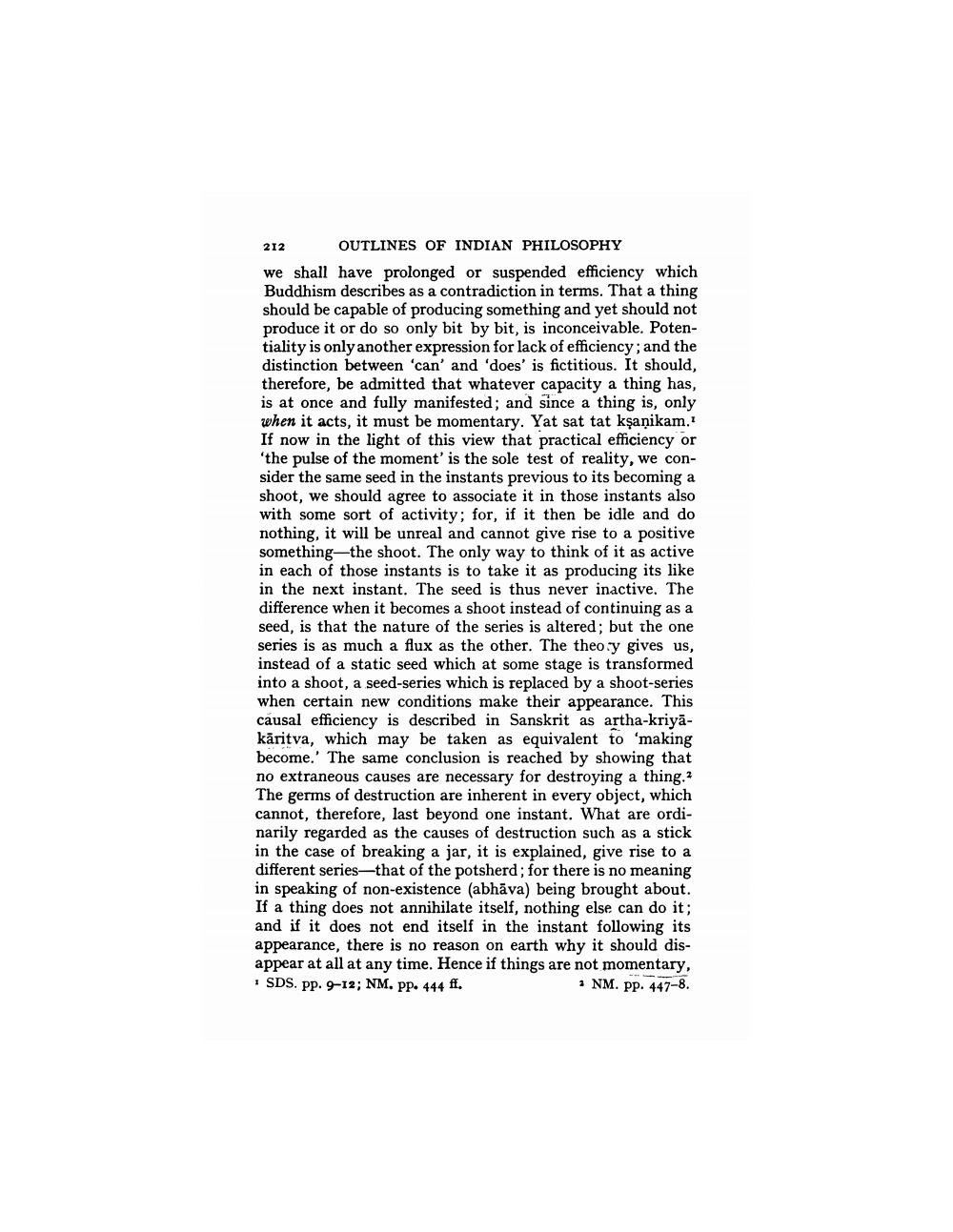________________
212
OUTLINES OF INDIAN PHILOSOPHY
we shall have prolonged or suspended efficiency which Buddhism describes as a contradiction in terms. That a thing should be capable of producing something and yet should not produce it or do so only bit by bit, is inconceivable. Potentiality is only another expression for lack of efficiency; and the distinction between 'can' and 'does' is fictitious. It should, therefore, be admitted that whatever capacity a thing has, is at once and fully manifested; and since a thing is, only when it acts, it must be momentary. Yat sat tat kṣaṇikam.1 If now in the light of this view that practical efficiency or 'the pulse of the moment' is the sole test of reality, we consider the same seed in the instants previous to its becoming a shoot, we should agree to associate it in those instants also with some sort of activity; for, if it then be idle and do nothing, it will be unreal and cannot give rise to a positive something the shoot. The only way to think of it as active in each of those instants is to take it as producing its like in the next instant. The seed is thus never inactive. The difference when it becomes a shoot instead of continuing as a seed, is that the nature of the series is altered; but the one series is as much a flux as the other. The theory gives us, instead of a static seed which at some stage is transformed into a shoot, a seed-series which is replaced by a shoot-series when certain new conditions make their appearance. This causal efficiency is described in Sanskrit as artha-kriyākāritva, which may be taken as equivalent to 'making become.' The same conclusion is reached by showing that no extraneous causes are necessary for destroying a thing.2 The germs of destruction are inherent in every object, which cannot, therefore, last beyond one instant. What are ordinarily regarded as the causes of destruction such as a stick in the case of breaking a jar, it is explained, give rise to a different series-that of the potsherd; for there is no meaning in speaking of non-existence (abhäva) being brought about. If a thing does not annihilate itself, nothing else can do it; and if it does not end itself in the instant following its appearance, there is no reason on earth why it should disappear at all at any time. Hence if things are not momentary, SDS. pp. 9-12; NM. pp. 444 ff. 2 NM. pp. 447-8.




